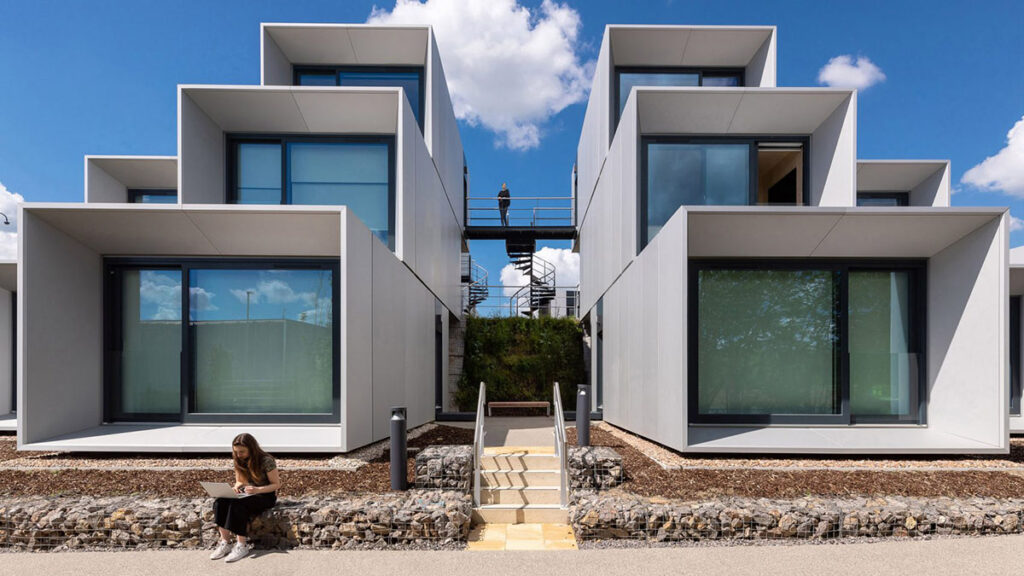
Government policies on modular housing: A Comprehensive Guide
The subject of government policies on modular housing has grown increasingly pertinent as the demand for innovative and affordable housing solutions rises. With a push towards rapid urbanization and sustainable living, modular housing presents itself as an efficient solution. In this article, we will explore the variety of policies that governments worldwide are adopting to facilitate and promote the integration of modular housing in their communities.

What Are Modular Homes?
Before diving into the policy aspect, its important to understand what modular homes are. Modular homes are prefabricated buildings made through a process where different sections, known as modules, are constructed off-site. These modules are then transported and assembled on-site to create a full-fledged house. The concept of modular homes aligns perfectly with the modern era’s demand for sustainability and time efficiency.
The Need for Government Policies on Modular Housing
As cities expand and traditional housing models struggle to meet demand, there’s a need for efficient solutions like modular homes. The role of government policies in this arena is crucial since they can either facilitate or impede the development and adoption of these innovative housing solutions.
The Role of Zoning Laws
Zoning laws play a significant role in the placement and construction of modular homes. By updating and amending these laws, governments can create an environment that supports the growth of modular housing. Alterations in zoning laws can help reduce the barriers for developers and investors looking to embark on modular housing projects.
Financing and Incentives
Financial incentives offered by governments can go a long way in promoting modular housing. These incentives can include tax breaks, grants, and low-interest loans that make it easier for developers and potential homeowners to adopt modular solutions. Such policies can significantly lower the cost of owning a modular home.
Environmental Benefits and Policies
One of the standout features of modular housing is its environmental efficiency. Governments worldwide are recognizing this aspect and incorporating policies that support eco-friendly construction methods. These policies often include mandates for sustainable materials and energy-efficient designs.
Reducing Carbon Footprint
Policies that encourage the use of modular buildings can help reduce the carbon footprint. Modular homes are typically constructed with eco-friendly materials and methods, aligning with global efforts to combat climate change. With the building sector being one of the largest contributors to greenhouse gas emissions, government policies are vital for promoting greener building practices.
Waste Management
The construction process for modular homes results in significantly less waste compared to traditional construction. This advantage is being recognized by governments, leading to the formulation of waste management regulations that complement modular construction. Such policies not only contribute to environmental conservation but also promote a circular economy.
Case Studies: Policies in Action
Countries around the globe are adopting policies that encourage modular housing. In the UK, modular housing is being identified as a key solution to the housing crisis. By offering financial incentives for developers and fast-tracking permits, the UK government is paving the way for increased adoption of modular housing solutions.
North America
In North America, several states have introduced incentives and tax breaks for companies implementing modular housing. These policies are aimed at tackling the affordable housing crisis while promoting sustainable living.
Asia
In Asia, specifically countries like Japan and China, modular housing has been rapidly gaining traction. Government regulations here focus on utilizing urban spaces efficiently, which is crucial given the high population densities.
Conclusion
As we have learned, government policies on modular housing play a critical role in shaping the future landscape of the housing industry. By examining various existing and potential policies, it becomes clear that a collaborative effort between governments, developers, and communities can lead to a sustainable and more secure housing future for all.

FAQs
What are the benefits of modular housing?
Modular housing offers several benefits including reduced construction time, cost-effectiveness, and a smaller environmental footprint compared to traditional building methods.
How can governments support modular housing?
Governments can support modular housing through financial incentives, updated zoning laws, and regulations promoting eco-friendly building practices.
Why is modular housing considered eco-friendly?
Modular housing utilizes sustainable materials and reduced construction waste, contributing to lower carbon emissions and supporting environmental conservation.
This article contains affiliate links. We may earn a commission at no extra cost to you.